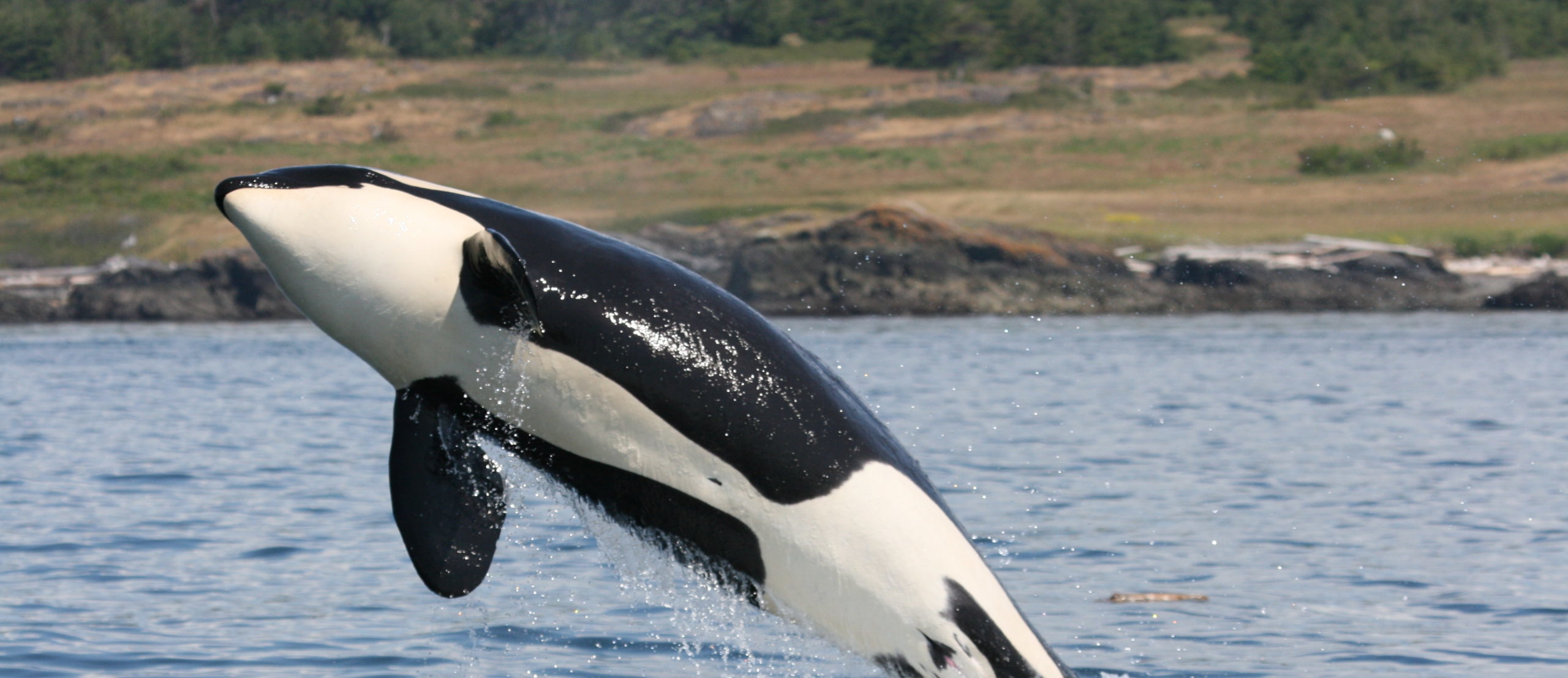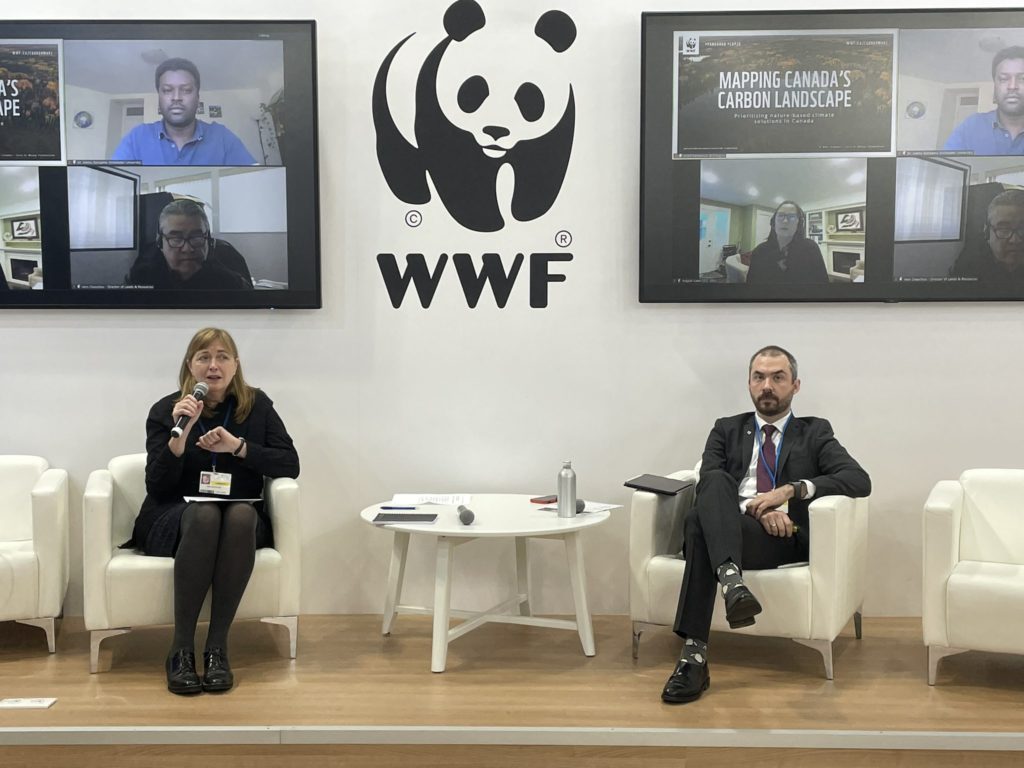Q&A: The UN COP15 summit needs to be a leap forward for nature
Once a decade, signatories to the Convention on Biological Diversity (CBD) gather to negotiate the next ten years of nature protections. CBD COP15, the UN biodiversity summit in Montreal from Dec. 7 – 19, is already two years behind schedule.
The targets agreed to in 2010 at the CBD COP in Aichi, Japan were to be renegotiated into a new Global Biodiversity Framework at the 2020 conference in Kunming, China. But after repeated COVID delays, it’s relocated here with China remaining president and Canada as host.
To find out more, we asked Mary MacDonald, WWF-Canada’s Senior VP of Conservation, about the summit she calls an “unmissable opportunity to tackle the accelerating crisis of biodiversity loss.”

How will COP15 differ from previous CBD COPs?
This meeting will be different from previous CBD COPs in part because it’s been delayed due to the pandemic, so the 2020 goals for the Convention have expired without new ones being agreed. And due to growing awareness of the feedback loops between climate change and the state of biodiversity, this is the first CBD where there will be strong pressure to fully acknowledge the value of healthy ecosystems in fighting both.
What does WWF-Canada want to see achieved at CBD COP15?
We need a global agreement that biodiversity loss needs to be reversed, and we don’t have that yet. In fact, none of the previous targets for 2020 were met. With nature and wildlife declining, it’s even more important this time that governments commit to strong nature positive targets for 2030 — and activate national policies and resources for meeting them.
What would a successful CBD COP 15 agreement include?
WWF-Canada is particularly interested in a Global Biodiversity Framework that includes measurable action that respects Indigenous right and priorities for protection and restoration in regions that benefit both biodiversity and climate.
For example, we’d like to see:
- 30 per cent of lands, marine and freshwater protected by 2030;
- a target for restoring degraded ecosystems;
- a strong and effective implementation mechanism that would increase over time;
- significant increase in financial resources to support more biodiversity; and
- recognition that nature is an ally in the fight against climate change by storing and removing carbon from the atmosphere.
Why does Canada have a unique global responsibility — and opportunity — when it comes to reversing biodiversity loss?
We’re a large country with a lot of nature and ecologically rich zones: 20 per cent of the world’s freshwater, world’s longest coastline, world’s second-largest store of carbon in nature, and massive boreal forest and prairie grasslands. The list is long!
And we’re home to Indigenous people who’ve been caring for lands and waters throughout their territories for thousands of years. We need to support the continuation of that extraordinary knowledge and action when Indigenous communities indicate it’s a priority for them.
As a rich country, Canada also has a responsibility to provide funding to countries with fewer financial resources. This work has already begun with a Government of Canada commitment of over $1 billion for climate solutions in developing regions that also strengthen nature, but there needs to be more.

What is the role of NGOs in general at COP15?
Non-government organizations have many different roles but, generally, environmental NGOs seek to move the status quo at all levels of government, business, communities, and individuals towards stronger, healthier and more equitable and just outcomes on decision-making and action for the planet.
In the UN system, NGOs are offered observer status for the UN environmental treaties. That means they can monitor and provide suggestions to negotiators, but they aren’t part of the decision-making process. Many governments, Canada included, invite NGO representatives to be part of their national delegations so ideas and information are easily shared.
NGOs stage events inside the negotiation zone and throughout the cities where negotiations take place to help inform negotiators, the media and the general public on issues vital to the treaties under discussion. This is happening at CBD COP 15. The Government of Canada, as co-host, has been particularly supportive of NGO participation.
What is the role and responsibility of business at COP15?
Like NGOs, business is seen as an important contributor to positive UN environmental treaty results. The position of the CBD is that businesses need to act in ways that contribute to the goals of the convention. They join the discussion on government delegations, through business associations, put on events, and seek to persuade negotiators.
READ MORE:
Why the whole world will be watching Montreal this December
Global wildlife populations plummeted by 69% average in past 50 years
WWF-Canada calls for a new model for creating protected areas to meet international commitments in countdown to COP15
At COP15, we look for businesses to commit to align their practices and strategies with halting and reversing biodiversity loss. That includes agreeing to mandatory requirements to assess and disclose their impacts and reliance on biodiversity by 2030, and to act on what they find.
How will we help ensure Indigenous rights are respected in the process?
For far too long, the tens of thousands of years of knowledge and ongoing care for the natural world by Indigenous Peoples around the globe has been ignored, threatened and thwarted. There is no path towards halting and reversing biodiversity loss and fighting climate change with nature that doesn’t recognize and support Indigenous knowledge, rights, governance structures and priorities.
Never again should an area be designated for protecting wildlife habitat, biodiversity, carbon stores, and access to natural beauty and recreation without full agreement and resources for the Indigenous nations and communities that hold rights to those lands and waters.
WWF Canada will carry this message with respect, and in collaboration with Indigenous colleagues and partners, throughout our events and contributions to CBD COP15 negotiations.
What will WWF be doing — and what should the Canadian government be doing — if world leaders do not come to an ambitious enough agreement for nature protection?
We’re hopeful and optimistic that countries represented at COP15 are there to negotiate in good faith, that it will be possible to say afterwards that COP15 was to biodiversity what Paris was to climate — a moment in history when the entire world recognized a global crisis and vowed to act.
Due to all the delays, there has been more consultation on new CBD targets than ever before in advance of this COP. The Government of Canada, in particular our Minister of Environment and Climate Change, has been working behind-the-scenes with their counterparts to increase the chance of an outcome we can all be proud of and build on.
But if we don’t — or even if we do! — get a strong set of goals and implementation commitments coming out of COP15, WWF-Canada will continue to pursue our own targets to Regenerate Canada through large-scale complex ecosystem restoration, protection, stewardship and threat reduction with a wide array of partners and in support of Indigenous priorities and rights.
This article originally appeared in our monthly newsletter, Fieldnotes. Click here to subscribe to future issues.
